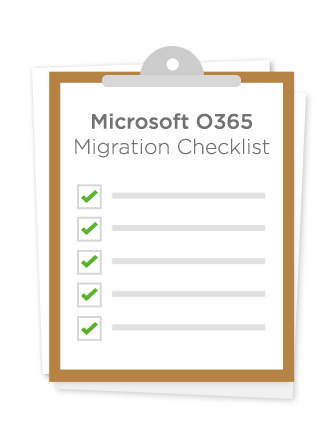The Pros and Cons of Microsoft Office 365 Adoption

With the steady rise in Software as a Service (SaaS) products, many companies are moving to cloud-based offerings like Microsoft Office 365. In many cases increasing efficiency and moving capital expenditures to operational expenditures makes adopting Office 365 sound like a no-brainer. However, as with all things that sound too good to be true, there are constraints and possible compatibility issues you need to know before making the right choice for your business.
Not all businesses have the same technology requirements. The fact is, the type of business you operate, the size of your company and the needs of the end user will all factor into your decision-making process. While accessing your options, you will find a great deal of information on this topic, so while weighing the plethora of Office 365 pros and cons, first consider your business needs and what your full scope of requirements will be.
Looking for an archiving solution? Download our guide on choosing the best solution for your business.
Microsoft Office 365 has various subscription levels with annual commitments for the enterprise, small business, education, government and nonprofit organizations. The product is cloud-based and offers a variety of options, however, if your business has strict regulatory constraints regarding customer security, you will most likely need to ensure security levels and email archiving protocols. Complex business governance may require an on-premises solution.
Some basic pros and cons of Office 365 for you to consider:
Pros
- Cost effective — Depending on how many users your office requires; Office 365 can be less expensive when it comes to paying for licenses. With the subscription model, you will receive upgrades automatically so you don’t have to pay for new software every time Microsoft issues a new release. Additionally, since you pay by the user, you are only paying for the resources you are using.
- Storage Drive — Each user also has access to One Drive, which depending on your service level offers up to 1 terabyte of storage, per user in a cloud environment. There are some permission-based features that allow you to share and sync files on a limited basis. You can also purchase additional storage if users need it.
- Easy access to files — For those who travel or work remotely, most Office 365 plans offer access to Word, Excel, PowerPoint and other programs through an online web version of the program, allowing you to open and edit your documents from any device and browser. There are also mobile apps you can download for the same purpose.
- Email is accessible and affordable — Since Office 365 Outlook is hosted in the cloud, you can access your email from anywhere, and at anytime. Most Office 365 email options do not require an administrator or hosted exchange server, making it way more affordable for smaller sized companies. Most plans are administered through a user-friendly interface that does not require an IT professional. However, if your business is larger and requires more robust controls, many of the enterprise versions have a PowerShell interface that administers permissions for email and other programs.
- Scalability — As with anything built in the cloud, Office 365 allows your business to scale from one user up to about 300 users. So as your business grows, Office 365 will scale to meet your requirements.
- Additional tools — Office 365 also features Skype, SharePoint and Lync Online for better communication and collaboration across your business.
- Business continuity — Built on the Microsoft Azure platform, Office 365 offers a reliable infrastructure, which is reliable and secure.

Cons
- Cost considerations — While the Office 365 subscription is generally more cost effective for most businesses, it may not work for your business. There are often budget choices, i.e. Cap-Ex vs. Op-Ex, or your business could be seasonal and the recurring fee may cause budget constraints.
- Infrastructure configuration — Not all businesses are one size fits all and there is less flexibility with customization when using Office 365 because it is built in the cloud. If you have a hybrid set-up, (combination cloud and on-prem) you may need to have third party involvement or add-ons when it comes to email or other collaboration tools.
- Data Security — As with any cloud-based solution, your information does not reside on-prem. In this case, it will sit on a Microsoft server. For many businesses, this is a secure option, but there are industries such as financial services and healthcare that must comply with regulatory constraints and require their data to be stored on-prem. Microsoft offers options for these businesses, but in general, they are more expensive and may not satisfy requirements.
- Email Archiving and eDiscovery — Office 365 also has limitations when it comes to archiving and eDiscovery tools. If your business is regulated, you will need to ensure that there are no restrictions in your plan when it comes to email retention and archiving. And while Office 365 boasts an eDiscovery tool, it may not be part of your plan or easy to administer. Before migrating to Office 365, you should examine both of these features. You may need to add a third-party email archiving service provider to ensure compliance.
- Email quotas and limitations — Unlike on-prem exchange servers, there are limits placed on how many emails you can send and receive in one day. These vary with subscription and Microsoft is working to improve size and quota limitations. This is something your business should investigate before moving ahead with Office 365.
- Collaboration tool drawbacks — If you use SharePoint, it is important to know that this program is also limited in Office 365. This is one of the tools that may require third party integration.
As with any technology investment, weighing the pros and cons of any platform requires in-depth research that begins inside your business. While Microsoft Office 365 is helping many businesses save money and capitalize on the cloud, you may need to consider the limitations and address any workarounds or the addition of third-party vendors.
As a proven third-party archiving solution, Intradyn Email Archiver has assisted countless Office 365 customers in gaining access to today’s most powerful archiving software and eDiscovery tools. Contact us today to learn more about the ways we’re improving our email archiving solutions in order to benefit our customers.

